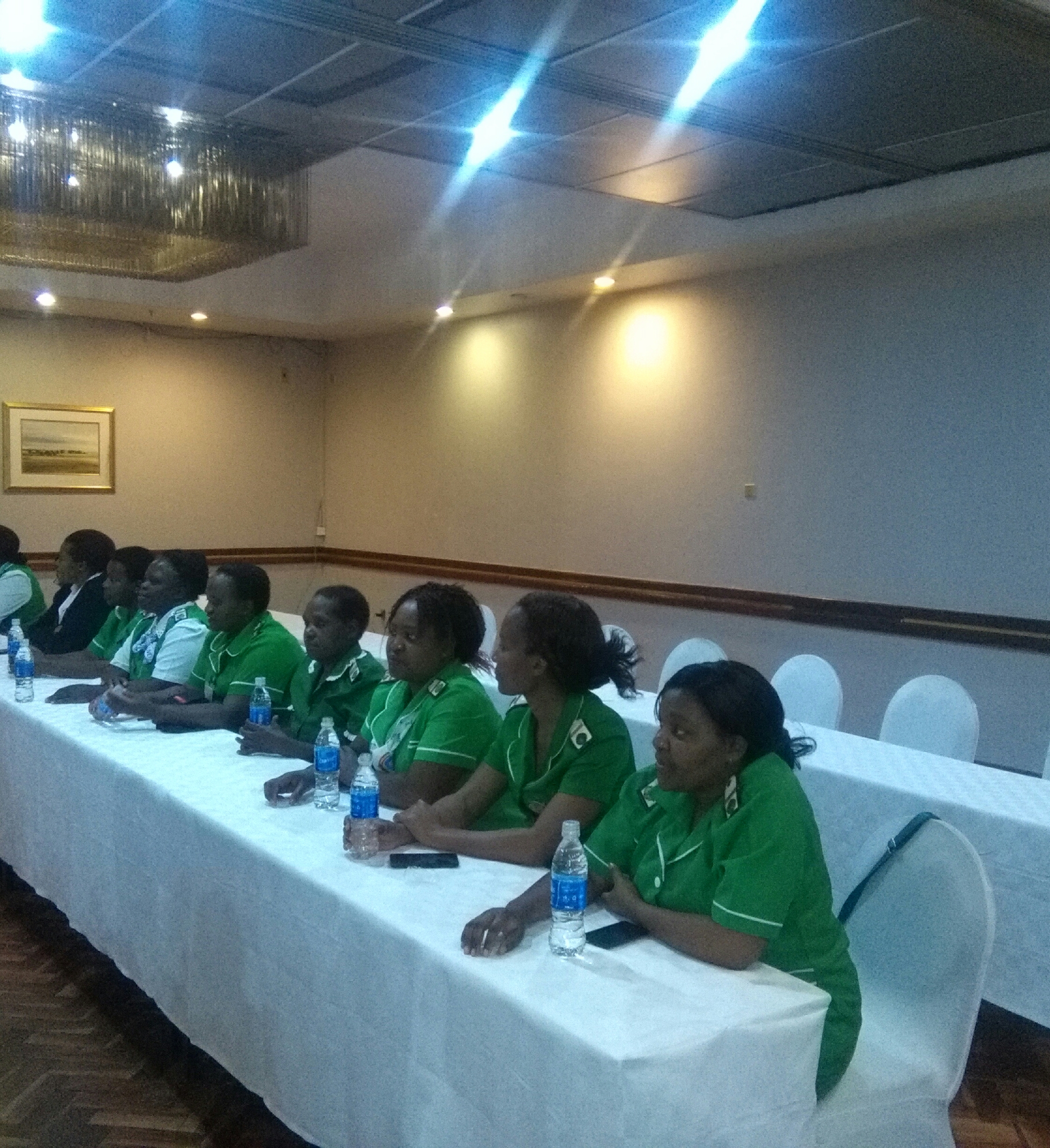By Byron Mutingwende
The nurse managers and educators in government are bemoaning the deteriorating conditions of service since the enactment of the Health Services Act in 2005.
Speaking at a stakeholders’ consultative meeting in Harare on Friday 25 July 2017, Simangaliso Mafu, the President of the Zimbabwe Nurses Association said there was a need to strengthen the healthcare delivery system by improving the conditions of nursing managers and educators.

“There is need to maintain the healthcare delivery by implementing the Berlin Declaration of May 2017. Our nursing managers are the least paid in the region and internationally. This demeans their leadership, educational and professional skills,” Mafa said.
He said the meeting was a platform to interface, discuss and come up with recommendations aimed at addressing the problems. Previously, the health workers including nurses were under the Public Service Commission (PSC) which caters for the rest of the civil service.
Based on experiences under the PSC, nurse managers feel worse off, disgruntled and neglected under the Healtgh Services Board (HSB), which directly emananted from the Health Sercices Act.
Peggy Dube, the Principal Tutor at Harare Central Hospital A competent health workforce is central to achieving universal health coverage (WHO, 2006).
Dube bemoaned the current structure which relegated managers to junior positions from where they were in 2005.
“The current structure elevated the executive team members of every level to Chief Executive Officers and directors but did not include nurses in the process. The effect was the elevation of staff under the operations and finance divisions,” Dube said.
She added that the structure derived from the Health Services Act came out with a reward system but nurses were left out monetary incentives, cars and benefits such as school fees for dependants and holidays.
The nurses were unhappy about the lack of recognition of their academic achievements and years of service and long hours of work. Enok Dongo said when nurses were given allowances, they were equalled to general hands, security guards and cleaners, yet on call allowances (which are much higher) are awarded to the rest of the professionals.
“The workload of nurses and clinical managers is not matched with the allowances they are awarded. We are not given the opportunity to make progress in our career,” Dongo said.
Simangaliso Mafa called for the amendment of the Health Services Act and subsequent adjustment of nurse managers’ grades and conditions of service.
One of the participants insisted there was a need to revert to the Public Service Commission for all nursing grades by 31 October 2017 where they expected to be matched with colleagues in the civil service with similar grades or qualifications and years of experience.
Pisirai Ndarukwa, a nursing manager said quality education is the foundation for developing competent health workers who are equipped with the knowledge, attitudes and skills necessary to deliver quality care.
“This has been realized in Zimbabwe through a rare cadre who has been developed to meet the needs of any nursing cadres through imparting, theoretical and practical skills. Unfortunately, the nurse and midwife educators are not acknowledged for their roles by their employer who has decided to reduce their standards to a pauper. In 2015 HSB regarded us as dubious cadres in apparent reference to an allowance that they had themselves had awarded to us by PSC when they had viewed our workload.
“We wonder what has changed! However, today we are very happy meeting for the very first time with the employer to present our position as to why the employer must reconsider her decision to poorly remunerate us the way she does,” Ndarukwa said in reference to Ruth Kaseke, the Executive Director of the Health Services Board.
Ndarukwa said that in Zimbabwe, educators were not recognised for the role they play. The mentors must be nurse or midwife educators to be able to mentor a Protégé. These must have been in the field for a minimum of 4 years qualification as an educator. The educator must complete 120 hours to be registered as an educator, which comprise both theory and practice of nursing.






